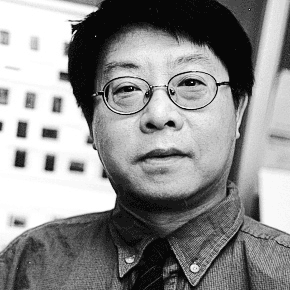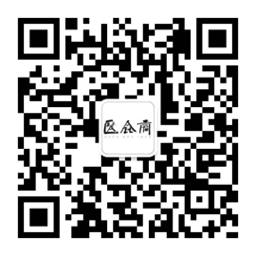Gao Minglu
“The Chinese art historians always use a lot of Western terms and Western theory to examine local art,” Gao says. Since Western theory doesn’t adequately account for Chinese traditions, interaction with Japan and Korea, or the tumult of the last half century, Gao seeks “a way that particularly fits Chinese and East Asian contemporary art history … a way to really close the gap between the text and the context.”

Gao Minglu' exhibiting his protest letter in front of the exhibition wall
Gao Minglu has been an active critic, curator, and scholar of contemporary Chinese art since the mid 1980s. Exhibitions curated by him are among the most important ever assembled in the U.S. and China while many of his publications explore the changing relationship between global art movements and Chinese tradition.
As editor of China’s leading art journal Meishu in the 1980s, Gao was a key figure in reporting on the art explosion he dubbed The ’85 Movement. In 1989 he curated the China/Avant-Garde Exhibition at the National Art Gallery in Beijing, but saw it shut down before it could open when an artist completing her installation fired an unlicensed gun. After leaving China in 1991, he became a leading researcher, writer, and authority of 20th century East Asian art. Afterwards Gao has curated 1998’s Inside Out: New Chinese Art, then the largest exhibition of modern art from his country. In 2005 he organized The Wall: Reshaping Contemporary Chinese Art, a collaboration of the Albright-Knox Art Gallery, the China Millennium Monument Museum in Beijing, and the University at Buffalo Art Galleries. The New York Times described it as “a thought-provoking exhibition that explores the many walls - physical and metaphorical - that unite and divide Chinese society.” “It’s not just about a physical wall,” Gao says of the project. “My goal is to find the boundaries shaping and fragmenting Chinese modernity.” For him, “The old districts are just destroyed, replaced by newer structures. But how is that changing the social structures?” Gao tries to reconcile his training in Chinese art and Western theory. “The avant-garde in the West has been related to modernity. In China, political and artistic currents interact more strongly. Along with its Zen Buddhist underpinnings, Chinese art has been shaped by socialist realism, Maoism, Tiananmen, and industrialization, creating something distinct that Gao characterizes in his 2003 book Chinese Maximalism.
SELECTED PUBLICATIONS
The Wall: Reshaping Contemporary Chinese Art (New York and Beijing: The Albright Knox Art Gallery and China Millennium Museum of Art, 2005)
Chinese Maximalism (Chongqing Publishing House associated with the University at Buffalo Galleries and the China Millennium Monument Museum, 2003)
Inside Out: New Chinese Art ed. (University of California Press, 1998)
Fragmented Memory: The Chinese Avant-Garde in Exile co-ed with Julie Andrews. (The Wexner Center for the Arts, 1993)
The Art and Methodology of Xu Bing (Taipei: The Elite Corporation, 2003). In Chinese and English
"Seeking a Model of Universalism: The United Nations Series and other Works," in Wenda Gu: Art from Middle Kingdom to Biological millennium (Cambridge MA: MIT Press, 2003) pp. 20-29
"Conceptual Art with Anti-conceptual Attitude" in Global Conceptualism: the Point of Origin 1950s-1980s (Seattle: University of Washington Press, 1999) pp. 127-139
"Extensionality and Intentionality in a Transnational Cultural System" in Art Journal Winter 1998, pp. 36-39
CUTATED EXHIBITONS
"The Wall: Reshaping Contemporary Chinese Art" organized by the Albright-Knox Art Gallery, the China Millennium Monument Museum in Beijing (CMMM) and the University at Buffalo Art Galleries, 2005.
"Ink Space," the first section of the 2004 Shenzhen International Ink Biennial Exhibition, 2004.
"Chinese Minimalism," co-organized by University at Buffalo Gallery and the China Millennium Monument Museum, Beijing, 2003.
"Harvest: Contemporary Art" (fengshou dangdai yishu zhan), The National Agricultural Museum, 2002.
Conceptual Art: Point of Origin 1950s-1980s sponsored by Queens Museum, 1999.
Insideout: New Chinese Art organized by the Asia Society and San Francisco MOMA, 1998.
Fragmented Memory: The Chinese Avant-Garde, Wexner Center for the Arts, the Ohio State University, 1993.
China/Avant-Garde Exhibition, National Art Gallery, Beijing, 1989.
























